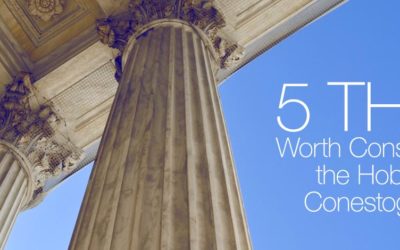Issue
Standards for Explicit Sexual Content in Schools
KEY POINTS
- School Boards are legally permitted to create policy setting standards for preventing age-inappropriate sexually explicit content in their curriculum and library.
- The standard ought not be: “As long as this book doesn’t land us in jail for giving it to a minor, the sexually explicit content is welcome in our curriculum or the school library.”
- Written policy protects students, parents, employees, and the school
and ensures better educational content will fill the finite space in curriculum and in libraries. - Schools should prioritize material that provides rich educational value over material that may provide similar value but also has age-inappropriate sexually explicit content.
- Age-Appropriate policies are not directed at viewpoint and are not banning the book from student possession. They are exercising the schools prerogative to determine what to include in its own library and curriculum.
Standards for Sexually Explicit Content in Schools
Schools must engage in line-drawing for age appropriateness of sexually explicit content in their library and curriculum. Criminal laws are one required line prohibiting schools from giving materials to minors in curriculum or library that a court deems pornographic or obscene. But what about sexually explicit content that does not rise to the extremely high bar of criminal law?
School boards are legally permitted to articulate standards that go beyond “would we land in jail for giving this book to a minor?” to prevent other age-inappropriate sexually explicit content in their curriculum and school library. Unfortunately, many schools have no policy standards for sexually explicit material beyond criminal law.
Schools with written age-appropriate standards for sexually explicit materials that differ for elementary, middle, and high schools protect students and ensures better educational content will fill the finite space in curriculum and in libraries.
But such written policies also protect the school’s staff and district from costly litigation. Even without written policy, a school librarian, principal, or school board is permitted to remove a particular title they deem age-inappropriate sexually explicit material. But with written policy standards, the school is less susceptible to baseless allegations that the title was removed for an impermissible viewpoint discriminatory reason.
School employees still have wide discretion to select and purchase books that comport with the age-appropriate standards in written policy set by the school board, and from that universe of materials, parents then have ultimate authority to make additional age-appropriate determinations for their own child and should have authority to restrict certain titles for their own child.
Individuals who desire to see sexually explicit materials in the hands of minors sometimes argue that such policies are “book bans.” Attempts at labeling common-sense school standards as “book bans” have been rejected by courts. See, C.K.-W. v. Wentzville R-IV Sch. Dist., 619 F.Supp. 3d 906, 909-910 (E.D. Mo. 2022) (“A school district does not ‘ban’ a book when, ‘through its authorized school board,’ it ‘decides not to continue possessing [a] book on its own library shelves.’”) Citing ACLU of Fla., Inc. v. Miami-Dade Cnty. Sch. Bd., 557 F.3d 1177, 1218 (11th Cir. 2009).
A parent, for example, who wants to buy sexually explicit books for their own child to read are not prevented from doing so by such school policies. School policies setting forth its own age-appropriate standards for sexually explicit content in its own curriculum and school library do not even prohibit a student from bringing their own book to school or from reading it in an appropriate time, such as study hall. But school districts do not have to put such explicit books in their own curriculum or in the school library, and such a decision by the school is not a ban on books.
Such policies treat inappropriate sexually explicit content the same regardless of whether the sexually explicit depictions or descriptions happen to be between straight, gay, or even a lone person. As such the argument made by those who desire to see sexually explicit materials in the hands of minors, that these policies are directed at LGBT people, is false.
Too many schools lack baseline standards regarding sexually explicit content in school libraries. Schools ought to spend the finite time in the day on academic excellence, and sexually explicit content detracts from that. Explicit sexual depictions and descriptions may sell, but refusal to purchase it is no ban. Districts can decide not to buy and stock sexually explicit content. If you are a school board member who desires to implement such a policy, we are glad to assist you.

Related Articles
Religious Liberty Threats Follow Marriage Redefinition
by Brandon McGinley It has long been contended by proponents of the traditional definition of marriage that with the abandonment of that definition will come assaults to the religious liberties we have long taken for granted. Naturally, those predictions were...
5 Things Worth Considering About the Hobby Lobby/Conestoga Decision
By Julie Blattenberger and Elijah Coryell 1. Hobby Lobby DOES provide contraceptive care for women. The Green family provides 16 of the 20 FDA-approved forms of contraceptive care. Their family’s religious conscience only objects to 4 drugs and devices which they...
Hallelujah! Victory for the Hahns, Religious Freedom
Freedom is the Ultimate Winner in Conestoga Wood and Hobby Lobby Supreme Court Decision Pennsylvania Family Institute applauds ruling as important First Amendment victory Liberty in America was affirmed and protected today as the United States Supreme Court sided with...
Pray for the Hahns Sunday – June 29
On Monday, June 30 the U.S. Supreme Court will issue their ruling on whether all Americans, including family business owners like the Hahns and their wood cabinet business in Lancaster County, are free to live and work according to their beliefs without fear of...
My View from the March For Marriage
by Elijah Coryell, intern, PA Family Institute Last Thursday, over 2,000 attendees rallied and marched on the U.S. Supreme Court to take a stand for the traditional definition of marriage. For a second year, the March for Marriage, planned by the National Organization...
State Representatives Support Clerk’s Appeal for Marriage
From Pennlive.com: Twenty Republican House members signed a letter addressed to Schuylkill County Register of Wills Theresa Santai-Gaffney supporting her decision to legally intervene against the May 20th decision by U.S. Middle District Court Judge John Jones...
The Pennsylvania Conference on Faith & Society – October 10-11, 2014
The Pennsylvania Family Institute, in partnership with the Intercollegiate Studies Institute, is pleased to announce a first-of-its-kind event for college students: The Pennsylvania Conference on Faith & Society. We will host nationally renowned speakers such...
No taxpayer dollars for strippers or gambling
Thank you to State Rep. Matt Baker, R-Tioga, for sponsoring an amendment to prohibit the use of electronic benefit (EBT) cards at liquor stores, casinos and strip clubs. The amendment was to HB 907, a bill prohibiting the EBT cards from being used for tobacco...



